
Michael Wharrad held the envelope in his hands, certain of what the paper inside would tell him. The then 72-year-old former investment banker in Kent, England, had been diagnosed with Parkinson’s disease nine years earlier. Now it was 2017—a year since he had been in a trial at the National Hospital for Neurology and Neurosurgery in London. Researchers were testing whether a drug approved to treat type 2 diabetes could also ease Parkinson’s symptoms. Wharrad received a daily dose of either the drug or a placebo, but he didn’t know which.
During the trial, Wharrad had thrived. His joints ached less, and he could get up from a chair more easily and take walks around the block. Friends and family commented on his obvious improvement. And his score on a Parkinson’s assessment tool improved significantly. “My wife and I were convinced I was taking the drug,” says Wharrad.
But at his end-of-trial meeting with one of the researchers—who also didn’t know whether Wharrad had been on the drug or not—he got a surprise. When he opened the envelope to find out what he’d been taking, he read the word ‘placebo’.
Wharrad’s reaction was disbelief. “I was speechless,” he says. “I had been feeling so much better.”
How Placebos Work
A placebo can be a sugar pill, a saline injection or a glass of coloured water: inert treatments that shouldn’t produce a physiological response. But often they do; Wharrad’s case is not unusual. In fact, placebos are increasingly proving to be more powerful than active drugs in trials—and they may just be the key to reducing our dependence on medications.
この記事は Reader's Digest India の July 2022 版に掲載されています。
7 日間の Magzter GOLD 無料トライアルを開始して、何千もの厳選されたプレミアム ストーリー、9,000 以上の雑誌や新聞にアクセスしてください。
すでに購読者です ? サインイン
この記事は Reader's Digest India の July 2022 版に掲載されています。
7 日間の Magzter GOLD 無料トライアルを開始して、何千もの厳選されたプレミアム ストーリー、9,000 以上の雑誌や新聞にアクセスしてください。
すでに購読者です? サインイン

ME & MY SHELF
Siddharth Kapila is a lawyer turned writer whose writing has focussed on issues surrounding Hinduism. His debut book, Tripping Down the Ganga: A Son's Exploration of Faith (Speaking Tiger) traces his seven-year-long journey along India's holiest river and his explorations into the nature of faith among believers and skeptics alike.
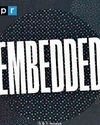
EMBEDDED FROM NPR
For all its flaws and shortcomings, some of which have come under the spotlight in recent years, NPR makes some of the best hardcore journalistic podcasts ever.
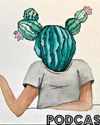
ANURAG MINUS VERMA PODCAST
Interview podcasts live and die not just on the strengths of the interviewer but also the range of participating guests.

WE'RE NOT KIDDING WITH MEHDI & FRIENDS
Since his exit from MSNBC, star anchor and journalist Mehdi Hasan has gone on to found Zeteo, an all-new media startup focussing on both news and analysis.
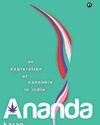
Ananda: An Exploration of Cannabis in India by Karan Madhok (Aleph)
Karan Madhok's Ananda is a lively, three-dimensional exploration of India's past and present relationship with cannabis.
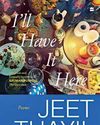
I'll Have it Here: Poems by Jeet Thayil, (Fourth Estate)
For over three decades now, Jeet Thayil has been one of India's pre-eminent Englishlanguage poets.
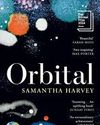
Orbital by Samantha Harvey (Penguin Random House India)
Samantha Harvey became the latest winner of the Booker Prize last month for Orbital, a short, sharp shock of a novel about a group of astronauts aboard the International Space Station for a long-term mission.

She Defied All the Odds
When doctors told the McCoombes that spina bifida would severely limit their daughter's life, they refused to listen. So did the little girl

DO YOU DARE?
Two Danish businesswomen want us to start eating insects. It's good for the environment, but can consumers get over the yuck factor?

Searching for Santa Claus
Santa lives at the North Pole, right? Don't say that to the people of Rovaniemi in northern Finland